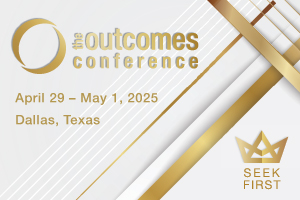
Playing On Offense By Dr. Jeffrey W. Steed
 If you are playing on offense, then foundations and endowments are game changers.
If you are playing on offense, then foundations and endowments are game changers.
I had every intention of being the most valuable player on my fourth grade basketball team. The problem was that I knew very little about basketball strategy, and I was short! In the beginning of that brief career as an aspiring MVP, I heard the word “offense” from my coach and honestly had no idea what it meant. I learned quickly that offense was when my team controlled the ball, while defense was when we were to prevent the other team from scoring. Offense had the optimal position on the court with the greatest probability of scoring. Defense focused on getting possession of the ball with the hope of a chance to score.
Many churches and other ministries seem to be constantly on defense when it comes to developing the resources needed to effectively fund ministry. Is has been well documented in publications over the years, such as The Great Evangelical Recession (Baker Books, 2013) by John S. Dickerson, that many local churches have confronted, and will continue to face, financial challenges due to various factors. Those factors include the passing of older generations which have traditionally provided a heavy portion of church contributions.
Foundations
So, what would it take for local churches and other ministries to go on offense? How can they implement a strategy for effectively developing resources needed to further their kingdom impact? Some churches and other ministries in America have found an effective way to go on offense – establishing their own foundation.
A foundation offers two key benefits:
- It is a purposeful tool to educate Christians on opportunities to leave estate legacies and to provide ministries with non-cash gifts now
- It can provide systems to help donors accomplish their objectives.
Often times, a foundation will provide front-end support to a ministry by promoting giving opportunities to its members and donors. Many ministries also establish a relationship with an outside organization that provides back-office support for a foundation; such as gift procurement, gift management, reporting to donors and to the IRS. There are denominational and non-denominational foundation-support organizations that provide this type of back-office support.
A ministry’s foundation is usually a separate legal entity, but is controlled by the ministry. Having a separate legal entity may also help with potential liability issues involving non-cash gifts. Ministries will also likely find that having a foundation provides additional credibility as donors recognize that the ministry has expertise to fully assist them with estate and non-cash gifts.
To set up a foundation, a ministry can seek the advice of ministry organizations designed to assist in doing just that, or acquire support of an attorney with experience with charitable foundations. Once the foundation is established and back-office support is in place, strategic efforts to promote the foundation and giving opportunities should begin. The goal is to provide consistent communication to constituents about ways to help the underlying ministry.
Endowments
If a foundation is not feasible due to the limited size and resources of a church or other ministry organization, establishing an endowment could be beneficial. An endowment is a perpetual account overseen by ministries which can be promoted to their constituents for the sake of estate gifts and current non-cash gifts. When funded, endowments provide a ministry with an annual income stream to support financial needs. To set up an endowment, a ministry needs to have a communication plan and policies in place about gift acceptance guidelines, use of funds and other procedures.
Through a ministry foundation and/or endowment, local churches and other ministries can obtain much-needed ministry resources. They also provide a mechanism to educate Christians on opportunities to have a perpetual impact on the life of the underlying ministry.
I recently conducted a survey among some Christians that included a question asking why many had not considered leaving a legacy for the kingdom. The number one response was, “Lack of knowing the opportunities.” Foundations and/or endowments provide a platform to educate constituents about those kingdom legacy opportunities.
It is time for local churches and other ministries to be on the offense for the glory of God. May Christian leaders strategically provide the platforms needed in their ministries to fund the great work God has called us to fulfill in advancing his kingdom!
####
Dr. Jeffrey W. Steed is Director of Planned Giving at the Southern Baptists of Texas Foundation in the Dallas/Fort Worth area. His educational background includes a D.Min. from Gordon-Conwell Theological Seminary, an M.Div. from Southwestern Baptist Theological Seminary, and an MBA from the University of Texas in Arlington. Steed has authored several books and articles.
Winter Session Outcomes Academy Online
Registration Deadline January 16, 2017
The Outcomes Academy is CLA’s most in-depth professional learning experience. Academy is designed by subject matter experts to equip Christian leaders for operational excellence in eight core functional areas. Practical and full of best practices, this learning experience offers critical insights and instruction that will advance the effectiveness of leaders and the organizations they serve.
If you want to learn more about Resource Development, CLA recommends you register for the following session:
Biblical Foundations of Development. Serving as faculty for this module is Douglas B. Wicks, M.A., CCNL, Manager of Strategic Projects and Foundations, The Christian and Missionary Alliance.





